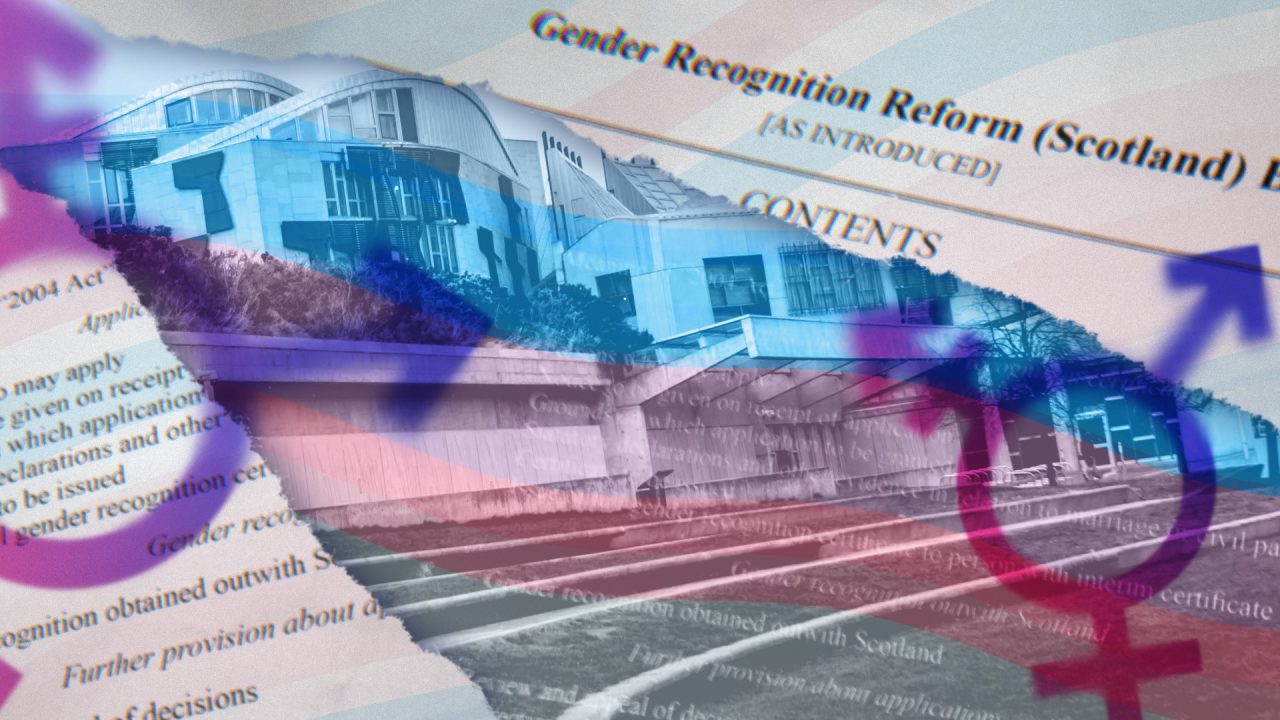MSPs are still considering changes to a controversial gender reform Bill at the Scottish Parliament, with a final vote not taking place until all the amendments have been debated.
Proceedings resumed at the Scottish Parliament on Wednesday afternoon following a marathon session the previous day, with MSPs in the chamber until after midnight.
More than 60 of the 153 amendments to the Gender Recognition Reform (Scotland) Bill were voted on in the first sitting, with a final vote – and almost certain passage into law – on the Bill slated for later on Wednesday or the early hours of Thursday morning.
The Bill will remove the need for a medical diagnosis of gender dysphoria currently required to receive a gender recognition certificate (GRC).
It would also lower the minimum age for applicants to 16 and drop the time required for an applicant to live in their acquired gender from two years to three months – six for people aged 16 and 17 but with a three-month reflection period.
There has not been unanimity across the chamber on the plans, with a number of MSPs speaking in contrast to the views set out by their own parties.
Despite the controversy, the Bill is likely to pass due to its support within the SNP, Greens, Labour and Liberal Democrat ranks.
But it could raise further disciplinary issues within the SNP, with seven MSPs from the ruling party voting against it – including minister Ash Regan, who was forced to quit – and two others abstaining at stage one.
Regan said during the consideration of amendments that she would not be supporting the Bill, while fellow SNP MSP Kenneth Gibson hinted he would again rebel against it.
SNP MSPs Fergus Ewing and Michelle Thomson, meanwhile, spoke in favour of amendments the Scottish Government opposed.
On Tuesday, MSPs backed a change tabled by SNP MSP Gillian Martin to the law which means anyone subject to a sexual harm prevention order or sexual offences prevention order will not be allowed to seek a GRC.
Meanwhile, a push by another SNP MSP to ensure applications are paused if an applicant is charged with a sexual offence until their case is disposed of divided members by 61 votes to 61 – as is customary deputy presiding officer Liam McArthur used his casting vote against the change.
The sitting on Tuesday was marred by protests from the public gallery, with opponents to the Bill shouting “shame on all of you” as another amendment that would make it harder for sex offenders to apply for a GRC was voted down.
It also appeared the Scottish Conservatives were attempting to make the proceedings take as long as possible, tabling four amendments to the agenda from four members, forcing a vote on the timetable for the consideration of amendments, raising a further motion which MSPs had to vote on and a number of points of order – all before the debate on the amendments had started.
The party also opted to push amendments to a vote, even when the proposer of the changes did not.
Dr Sandhesh Gulhane, Scottish Conservative shadow health secretary, said: “No Matter what side of the debate you are on the #GRRBill we all agree this is rushed and stage three must be afforded time for proper scrutiny.”
But Scottish Liberal Democrat leader Alex Cole-Hamilton said: “Far from being rushed or haphazard, these debates on the Gender Recognition Reform Bill come after years of work in Scotland.
“Upholding and endorsing the rights of the individual is fundamentally what this Bill is about and that is why Scottish Liberal Democrats will support it.”
The final week of the legislation came against the backdrop of public shows of both support and opposition outside the Scottish Parliament, with a number of rallies held.
The Bill has been one of the most controversial in Holyrood since devolution, with opponents raising concerns over its impact on the safety of women and girls.
The Scottish Government insists the legislation will not impact the Equality Act, which allows for trans people to be excluded from single-sex spaces such as changing rooms and shelters, something that was affirmed by an earlier amendment from Labour’s Pam Duncan-Glancy.
Speaking ahead of the final consideration of the Bill, social justice secretary Shona Robison urged fellow MSPs to back the legislation.
“Today marks the culmination of a six-year process of consultation and policy development to simplify and improve the process for trans men and women to obtain legal recognition through a GRC,” she said.
“If Parliament approves this Bill, it will be taking a significant step forward in creating a more equal Scotland, where trans people feel valued, included and empowered.
“Trans rights are not in competition with women’s rights, and as we have seen in the past, rights can be improved for everyone when those discriminated against and who face prejudice work together as allies.
“These reforms are supported by a majority in Parliament and members of all parties. I urge all members to vote in favour of these important reforms on what will be an historic day for equality in Scotland.”

Insight Colin Mackay Political Editor
“It’s the winter solstice, the shortest day of the year – but it’s not going to feel like that to MSPs debating and voting on the Gender Recognition Reform Bill.
“A three-hour session lasted eight hours yesterday. They were supposed to be voting on the final Bill right now – but they are a long way from that.
“And during that nothing much has really changed – the Government has not lost a vote although it has accepted some tweaks to tighten the legislation.
“And as trans people wait to cheer this when it finally passes enhancing their human rights, several hundred women have been protesting outside claiming this will diminish their rights.
“MSPs are debating key amendments right now on single sex spaces and services – this has been one of the most contentious issues, particularly for women concerned that their rights will be diminished – those protesting outside today.
“The social justice secretary maintains that this Gender Recognition Reform Bill will not have any impact on the UK Equality Act – in fact the reason she has given for not accepting any amendments on this is because the Scottish Parliament does not have the power to amend UK legislation and that could put this whole Bill at risk.
“The votes are still to come, there are hours of amendments still to deal with before MSPs get to the final vote – and that final vote will support the Gender Recognition Reform Bill.”
Follow STV News on WhatsApp
Scan the QR code on your mobile device for all the latest news from around the country


 STV News
STV News
























